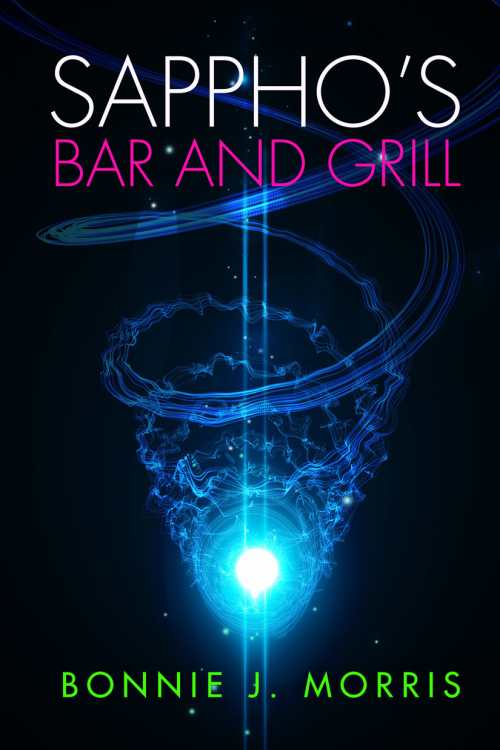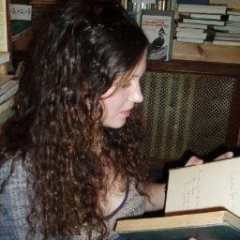Toward Equality, Through Time: Author Combines Science Fiction with Feminism

Feminism has not always been—and is not now—the cultural default. That does not mean that there have not always been brave women who powerfully assert the equal humanity of all, though. In her latest book, Sappho’s Bar and Grill (Bywater Books), historian Bonnie Morris takes the idea of communing with such trailblazers to science fiction, launching into travels through time to engage the women who paved her way.
It’s a thrilling and inventive premise that marries hope for a better future with admiration for those who carved out spaces for our own progressive steps. Look for it in the next issue of Foreword Reviews.
What makes science fiction and feminism such perfect bedfellows?

Bonnie Morris: 'Feminist scholars can be playful, cheerful, humorous, sexy, bold!'

Feminism demands that we create a world where female strength is valued and acknowledged. When that’s unjustly denied us here and now, we take comfort from imagining what it might look like, inventing new realms. As an historian, I imagined the possibility of speaking to the past, dining with my own feminist heroines, even having dates with them–bending time to create smart-girl romance!
If you could steal one of Hannah’s time traveling trips, who would you like to meet? What would you discuss?
I would LOVE to party with Sappho, whose name is tattooed on my left calf muscle—a class where I taught her poetry ended up canceled forever due to nasty university budget cuts, and I decided a tattoo would let me “stand with Sappho” and “step forward into women’s history” every day for the rest of my life. I’d like to talk with Sappho about the place where ocean culture, poetry, and love of women collide: I grew up in L.A. walking into the sea every day, and imagining that I ran a school for girls, which of course is what Sappho did.
Can you tell us about the experience of working with Bywater to bring Sappho’s Bar and Grill to print?
Bywater has been wonderful. I gained an entire community of new friends when I eagerly joined the Golden Crown Literary Society. At our conferences I’ve met writers I longed admired, and they in turn have been loving, wise and welcoming. As a longtime nonfiction writer, I am putting new and different muscles to work with the Sappho book, and it’s a joy to have everyone’s trust. Elizabeth Andersen is a terrific editor, who has also interviewed me on radio, so that I feel comfortably multi-media about representing Bywater.
You’ve worked within academia; your lead in Sappho’s is a women’s studies professor. Are there any false perceptions about academia, and about academic life, that you’d like to correct?
Academia is changing rapidly; women’s studies has become gender studies, and I fear that we have rushed to bury the subject of women’s history before it even reached most students. I’m more of a history specialist than a theorist or postmodernist–it’s vital that we know how different women lived, worked, loved and survived in the past. I went to one of the only graduate programs in the country to offer a Ph.D. in women’s history in the 1980s, Binghamton, a “public ivy” in upstate New York–we were just starting to see the women’s history field take root. It felt like being a feminist warrior for visibility and representation. I’m still committed to that vision, and to having lesbian history understood as a viable subject of study. Feminist scholars can be playful, cheerful, humorous, sexy, bold!
Can you tell us a little bit about your work with the Women’s History Museum? Which exhibits would Hannah be particularly excited about?
I am now working with four different archives. This winter I had an exhibit of rare feminist and lesbian music recordings and songsheets in three glass cases of the Library of Congress, a first! I’m also working to archive women’s music legacies at the Smithsonian; and my own thirty years of field recordings and taped interviews are going to the Schlesinger Library at Radcliffe.
Since 2011, I’ve worked with many women trying to build a National Women’s History Museum in D.C, and to further that process I sent Congress a very thorough women’s history syllabus, showing how a women’s museum could benefit students and visitors. I’ve also created a short reading list on women in science for the U.S. House of Representatives.
What projects are you working on next?
I can share that Hannah is already active in the sequel I’ve started to write, Sappho’s Overhead Projector. She’ll be having adventures in the Library of Congress herself!
I might add that I have been fortunate to grow up and come out with the support of very hip and loving parents; and, fun fact: an avid journal-keeper since age twelve, I am now on volume 180.

Michelle Anne Schingler is the managing editor at Foreword Reviews. You can follow her on Twitter @mschingler or e-mail her at mschingler@forewordreviews.com.
Michelle Anne Schingler
